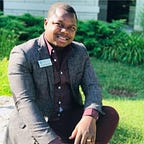Project update Sept. — Oct. 2020 “Economic empowerment of vulnerable women in the peri-urban village of Zongo, Burkina Faso”
We are excited to update our readers about the project titled “Economic empowerment of vulnerable women in the peri-urban village of Zongo, Burkina Faso” that we previously unveiled in an article on August 21, 2020. For a total cost of approx. 4,700 USD fully funded in the Ethereum Community Grant, this interesting gender project started successfully in October 2020. But let’s go back to the beginning.
September 2020
The month September 2020 was dedicated to meeting the project management team and agreeing on the final structure of the project. Following some deep reflections, Aid & Save and SeedHAf decided to restructure the project. The updated project is now about producing and distributing chicks to women so that every beneficiary could receive a big number of chicks to farm at home. For that, SeedHAf will set up a chick production unit by purchasing an incubator and some eggs to start. In the long term, the initial beneficiary will share their chickens with the new ones sustainably. A company named Faso Elevage Sarl which is specialized in chicken farming will support on costs control and farming techniques. An association named Baobab Ramsa which is located in the village of Zongo will be the project hub where women gather and meet with the project managing team. A first transfer of 2,800 USD was made to start the project and the remaining 1,900 USD is due the next months under satisfactory implementation and reporting.
October 2020
In October 2020, the project management team met their partners namely the company Faso Elevage Sarl and the association Baobab Ramsa to start the first activities.
They also conducted some interviews with women and selected 32 of them to be the first group of beneficiaries. The statistics showed that 58% of them are widows with at least 4 children each and they all live in a precarious financial situation.
They finally identified in collaboration with the community some place where the production unit would be installed. It is important to specify that the number of beneficiaries will increase gradually within a year thanks to the production unit and the incubator through the distribution of eggs and chicken to new beneficiaries to support their farming.
